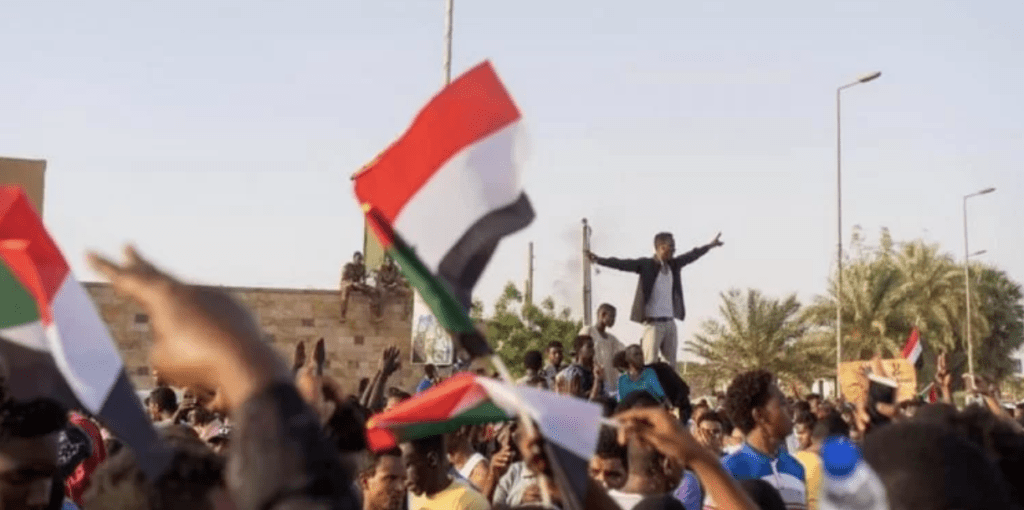The Sahel Spring: Who Will Own the Future in Sudan and Algeria?
Things have changed since the pro-democracy revolutions of post-Soviet eastern Europe, in part because of another revolution altogether — the Fourth Industrial one.

Lisa Van Dusen/For The Hill Times
April 17, 2019
The protests had gone on for weeks — so long that life in the capital was now divided into before and after. Viral villains and heroes emerged and faded, demands were issued, princes were toppled and euphoria was witnessed and registered around the world.
“It was a sense of liberation for me,” said one high-profile opposition leader. “For the first time, [we have] a chance to be democratic, to be free, to have a sense of dignity, of freedom.”
That was Nobel laureate Mohamed el-Baradei, speaking as Hosni Mubarak finally relinquished power after 30 years as president of Egypt in February, 2011.
It’s been hard to fathom the miracle of Tahrir Square in the years since then, to remember what it felt like in real time to watch so many people determined to secure for themselves and each other the right to determine their own destinies. Until the past week, as the world watched Sudanese and Algerian protesters dispatch entrenched dictators with a similar sense of euphoria and — given events in Egypt post-revolution — trepidation.
In a moment that blazed through social media last week, a Sudanese soldier played the saxophone as a demonstrator draped the Sudanese flag across his shoulders. The scene echoed the short-lived public support for the army that prevailed after Robert Mugabe was dislodged by the Zimbabwe military in 2017 and after Mubarak was replaced by a Supreme Military Council in 2011.
“The people and the army are one hand!” protesters in Tahrir chanted as the military became an ally in the peaceful push for regime change until suddenly it ceased being either an ally or peaceful. By 2012, the tanks had turned and the Muslim Brotherhood had been handed just enough rope to give democracy a bad name. It took a year for Egypt’s doomed experiment to dissolve in a coup, and another year for the leader of the coup — former military intelligence chief Abdel Fatah al-Sissi — to be elected president as a civilian with a Mubarak-esque 97 per cent of the vote. For the interests currently bent on tilting the world’s democracies into the non-democracy column, continuity of non-democracy status for Egypt was secured. In Sudan, the military council has allotted two years for a transition to “civilian-led rule”.
The Arab Spring unfolded at a time when technology had already made the world’s intelligence services more powerful than both the governments they report to and the taxpayers who fund them. The mobilization and democratizing applications of social media were known but the surveillance, hacking, tracking and harassment applications were not. In that sense, Tahrir Square was not so much a failed revolution as a successful intelligence operation, producing a trove of information on activists, many of whom remain in prison.
What it lacked that countries that had flipped into the democracy column since the fall of the Soviet Union did not was robust post-revolutionary support from the West. Instead of flooding the zone with armies of Organization for Security and Cooperation in Europe (OSCE) lawyers and National Endowment for Democracy consultants, the West watched as the Egyptian government began raiding and shuttering pro-democracy NGOs less than a year after Mubarak was toppled. The Egyptian government knew that democracy isn’t just about free, fair and un-hacked elections. It requires an infrastructure of constitutional integrity, judicial independence, a free and uncorrupted press and respect for human rights.
There are ways to establish those elements in Sudan and Algeria in far less than the near-decade it has taken Egypt to subvert them, starting with constitutions more democratic than the one the Sudanese army just suspended. The good news is, Sudan and Algeria’s revolutionaries seem to have learned the lessons of Cairo.
Lisa Van Dusen is associate editor of Policy Magazine. She was Washington columnist for the Ottawa Citizen and Sun Media, international writer for Peter Jennings at ABC News, and an editor at AP National in New York and UPI in Washington.
